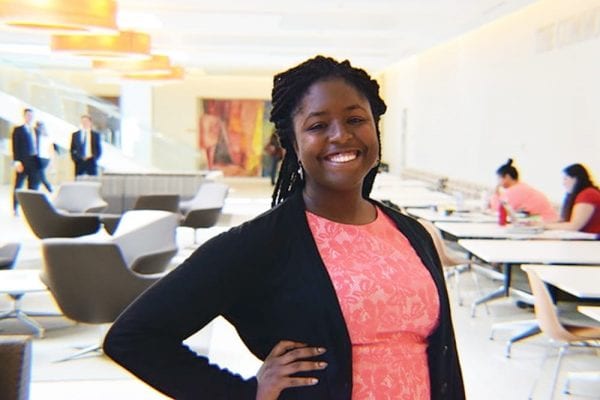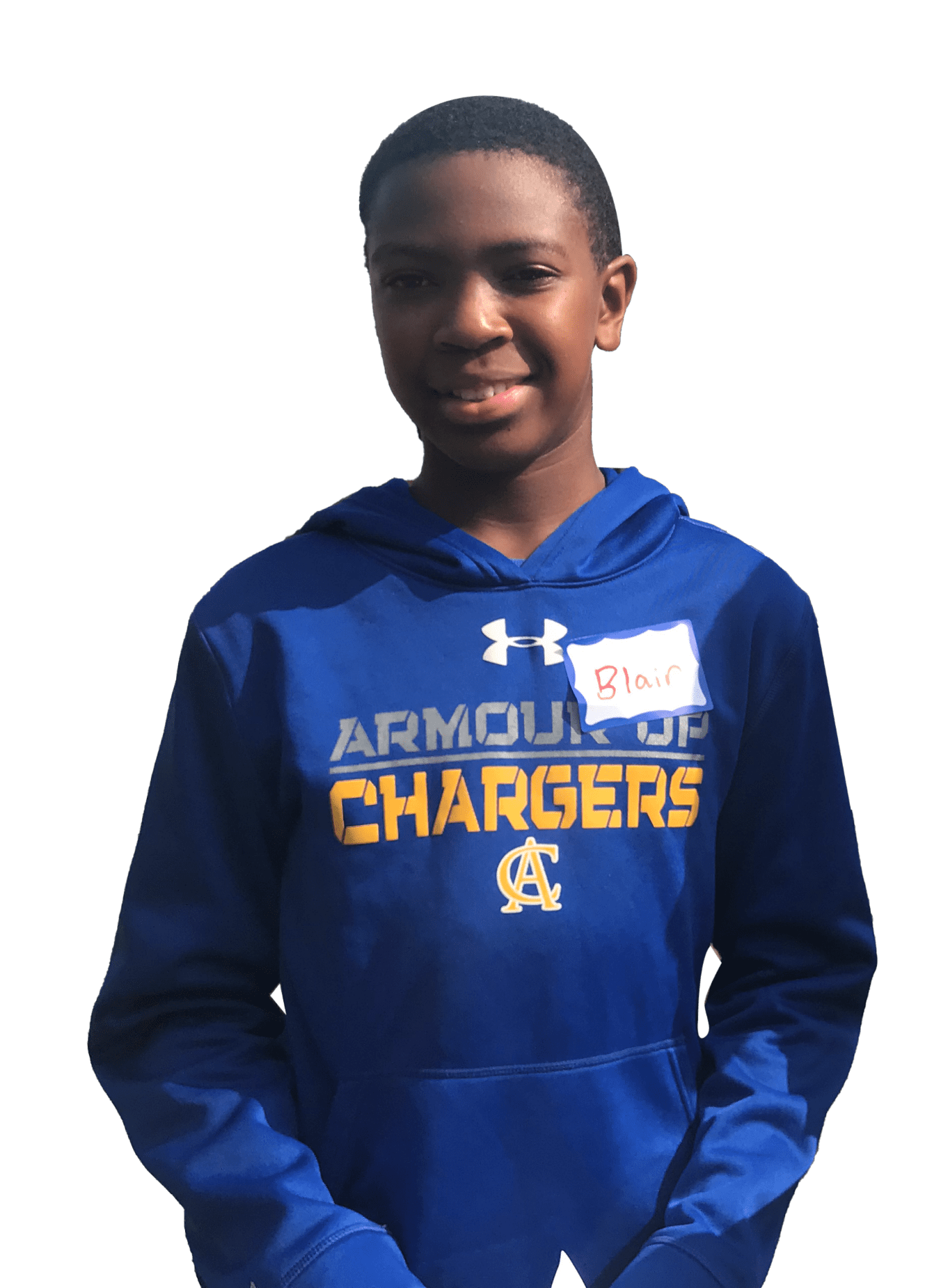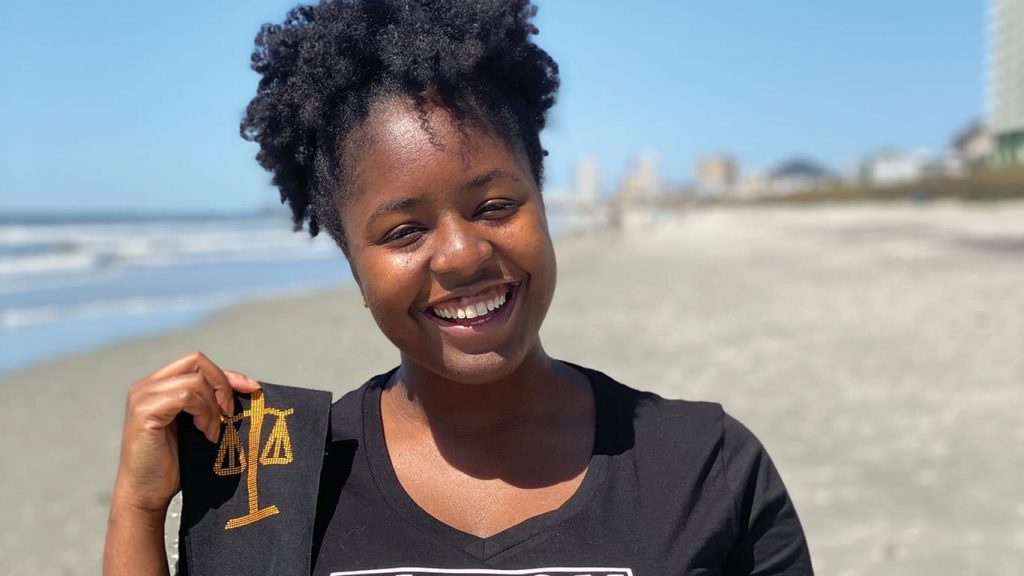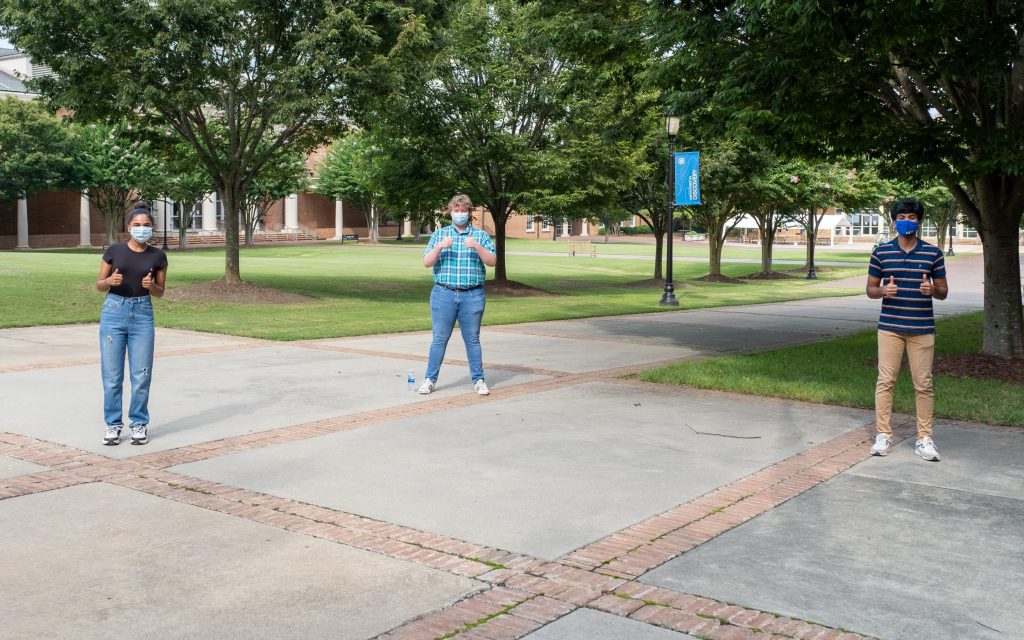Brianna Gaddy ‘12 is a lawyer with a mission. Her goal? To fight systemic racism to create a more inclusive and equitable legal system for all—one judicial outcome, one policy at a time.
Gaddy did not always know she wanted to be a lawyer. A love of language and international travel—first ignited during her time at CA, thanks to a transformative world exchange trip to Chile—led her first to pursue majors in global studies and Spanish at the University of North Carolina.
In Murcia, she saw firsthand how the complex historical, social, and economic dynamics she had studied in college played out in the lives of her students. “The dynamics of race, of language, of culture, the challenges that faced my Moroccan immigrant students in Murcia, they were reminiscent of the issues that I had seen tutoring in Durham,” explains Gaddy.
“Global studies encompassed so many things I cared about. It had an international dimension. I could focus on women’s issues, on social issues,” she explains. “I was immediately drawn to classes, particularly geography classes, that focused in on the interconnectedness of political, social, and economic systems.”
Upon graduation, Gaddy, who loved teaching children—having tutored kids in an afterschool program in Durham throughout her undergraduate years—and had developed an abiding love of Spain during a positive study abroad experience, jumped at the opportunity to teach abroad through a program offered by the Spanish government. She moved to the small town of Murcia in southeastern Spain to teach English to students in kindergarten through eighth grade.
In Murcia, she saw firsthand how the complex historical, social, and economic dynamics she had studied in college played out in the lives of her students. “The dynamics of race, of language, of culture, the challenges that faced my Moroccan immigrant students in Murcia, they were reminiscent of the issues that I had seen tutoring in Durham,” explains Gaddy.
“I realized that these issues are much bigger than student/teacher dynamics, much bigger than teaching,” she continues. “As a student, how do you care about learning English, or language arts or math, when you are prevented from being your best self? When you aren’t given the best chance in life? When you are food insecure? When you are marginalized?”
She realized the enormity of the issues at hand called for systemic change. “I couldn’t affect the kind of change I wanted to see on the day-to-day level of teaching. There were laws that needed to be changed, policies that needed to be developed.”
She quickly turned her sights on law school. And, after taking the LSAT, was accepted to American University, known for its focus on international human rights.
She initially dreamed of one day taking a position with the United Nations. She quickly discovered, however, that difficulties enforcing international law, coupled with a challenging job market, would significantly limit her ability to effect change.
Instead, an early internship with The Honorable Reggie Walton in Washington, D.C., would expose her to an interesting alternative, opening her eyes to a surprising new passion for labor and employment law. “I loved how it combined black-letter law with social and economic issues,” offers Gaddy.
That introduction would ultimately lead her to pursue another internship, this time with the Employment and Opportunity Commission. It was a particularly formative experience. “My work with the EEOC helped me to understand how individual cases eventually give rise to implemented policies,” explains Gaddy. And, in policy work, Gaddy discovered her long sought-after outlet to effect meaningful change.
How can employment and labor policy contribute to significant social and anti-racist change? To explain, Gaddy offers an example, pointing to something that, on its face, might seem fairly innocuous: dress codes.
“Some dress codes prohibit certain hairstyles, like afros or dreads,” explains Gaddy. “While not discriminatory on their face—they don’t outright name Black people as the intended targets—their implementation has a discriminatory effect.
“While it may seem a small matter—a hairstyle—these are the microaggressions that add up to systemic racism and larger inequalities,” says Gaddy. In schools, it might mean that Black students get more suspensions for dress code violations, an early condemnation of Blackness. In the workplace, it might mean that Black women or men are discouraged from applying or working for particular companies or in a specific field.
She notes that current shortcomings in our legal system make it hard to combat this kind of discrimination. “Right now, the responsibility is on the aggrieved party to prove something called disparate impact, which is difficult.” She points to the recent CROWN Act legislation—which prohibits discrimination based on hair, and which has been adopted as law in California, New York, and is pending legislation in other states and counties—as a step in the right direction.
However, until that kind of anti-discriminatory legislation is enacted uniformly across the United States, Gaddy is turning her attention to policy. “Employment policies can make the fight easier,” she offers. “We can encourage companies to reconsider their policies, to not simply follow the law at its most basic, but to go further, to ask, for example, ‘what are we doing in our workplace to make sure that Black people are comfortable going in for an interview.’”
Gaddy’s ultimate goal? To effect significant changes in the legal system that reflect an increased focus on inclusivity and equity, and a better awareness of how systemic racism and socio-economic differences influence and are shaped by judicial outcomes.
“There is a big divide when you come into court based around the resources you have at your disposal, based on the education that you have had, based on your background. We have to figure out ways to bridge that gap,” offers Gaddy.
“We have to ensure that people are educated about their rights, that they understand the legal process, that they have a fair experience. We have to make sure that judges understand the larger social, economic, political systems that are in play in a given case and that their decisions are equitable.”
She’ll be doing precisely that in the fall when she starts a year-long clerkship with Judge Jeannie J. Hong in Baltimore City Circuit Court. As a clerk, Gaddy will be performing legal research, ensuring that her judge has the information needed to consider all dimensions of a case and render an equitable decision. And, she’ll be helping to draft opinions that clearly lay out the rationale and legal principles behind a ruling.
While not all lawyers opt to clerk, for Gaddy, it is an important step. “I think it is crucial to get an insider view of how courts work, to see how different people interact with the judicial system. I’m passionate about helping the clients that are before me. On the family court docket in Baltimore City, many litigants are pro-se—they are representing themselves in court—so we’ll have to do a little bit more to ensure they understand the process and have an equitable and fair experience.”

On completion of her clerkship, Gaddy will be moving into a permanent position as a lawyer with Miles and Stockbridge in Baltimore. There, she’ll be working in their Labor, Employment, Benefits, and Immigration division, likely on a range of labor and employment matters such as representing employers and businesses in matters including discrimination and harassment, family medical leave, retaliation, and wage and hour issues.
Gaddy admits that her work is difficult given the current human rights climate, with systemic manifestations of racism and violence against the Black community coming to stark light. “Sometimes, it is hard to stay motivated to work within a system that hasn’t worked for people like me. It can be hard to keep going,” she admits. “Why am I studying for the bar, why am I focused on a test, when I have seen so many instances where the justice system has let down people who look like me?”
In those darker moments, she finds strength and perseverance by tapping into her larger “why” and recentering on her goals. “I try to remember the broader reasons why I chose this path—my passion for changing laws to create a more equitable society, for working to bring justice for all members of our community regardless of their background, privilege, or resources. “Thinking about the difference I can make once I can practice, it helps me put my head down and keep doing the work, to get over the next hurdle.”
She also recognizes the importance of being a role model to others in a field that is one of the least diverse of all professions. “Only 2% of lawyers are Black women. I want little Black girls to know that they can achieve this—that they can be lawyers, that they can be in positions of power, that they too can make important change.”





